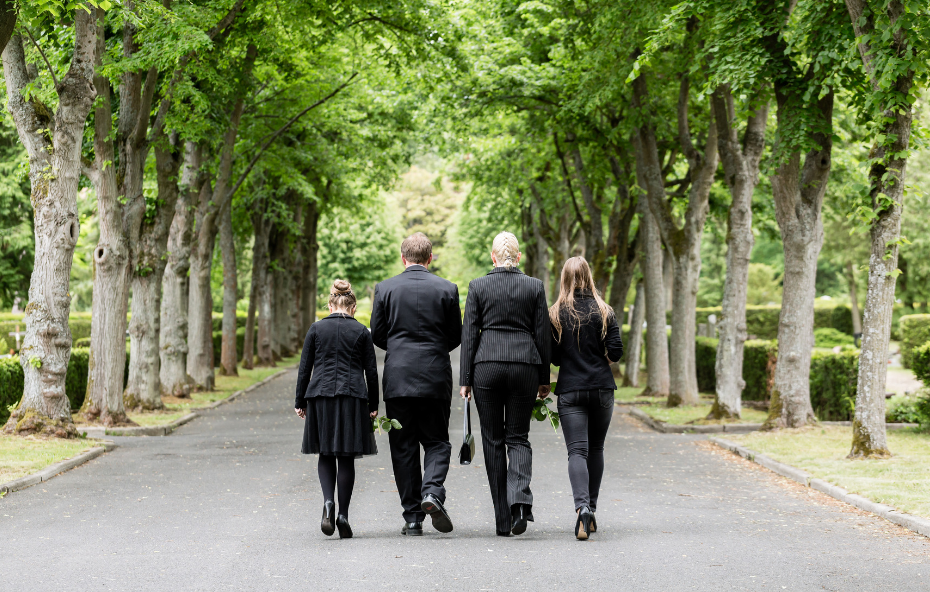“The darker the night, the brighter the stars, the deeper the grief, the closer is God!”
― Fyodor Dostoevsky, Crime and Punishment
We’ve all felt nausea hit us out of nowhere. Like a wave washing through us, the symptoms are felt immediately. Grief is similar, but with a more powerful punch. It can double us over, take our knees out, and leave us wordless and heaving deep sighs.
In two separate articles this week, the writers describe grief as a force of nature, almost animalistic, an uncontrollable wildness to it. In “10 Years Without Steve,” Dallas Morning News Op-Ed contributor Tyra Damm discusses the emotions she’s felt in the aftermath of her husband’s passing. Elizabeth Gilbert of Eat, Pray Love stratospheric fame, also touches on the subject in a TED podcast with Chris Anderson. In the interview, she says this:
“Grief… happens upon you, it’s bigger than you. There is a humility that you have to step into, where you surrender to being moved through the landscape of grief by grief itself. And it has its own time frame, it has its own itinerary with you, it has its own power over you, and it will come when it comes. And when it comes, it’s a bow-down. It’s a carve-out.
There are certain things that happen to you as a human being that you cannot control or command, that will come to you at really inconvenient times, and where you have to bow in the human humility to the fact that there’s something running through you that’s bigger than you.”
We have to bow down to a force greater than ourselves. I mention Gilbert in my book, I’ve always loved her TED talk “Your Elusive Creative Genius.” In the piece on grief above, and in the TED video, she recognizes there’s something outside of us steering the ship. I’m fascinated by how people describe the force, when it’s recognized as the greater power in the equation. Many folks refer to this “entity” as the universe, which seems so cold and lifeless, particularly in relation to grief. When Gilbert or Damm speak of “things that happen to to you as a human being that you cannot control or command,” I do understand why someone might view the experience as a universal force. Upheaval in our lives often seems random, it certainly seems unfair and out of bounds. A multitude of “Why’s” flood our thoughts. If there is a loving God we view as a Father who cares so deeply, why does He allow so much tragic pain?
This is where Gilbert and Damm may have a different prism for the experience. In the DMN piece (check out the snazzy new design of DallasNews.com), Damm mentions leaving her longtime church for a new congregation. While the relentless pain from losing someone is the same for both women, the suffering might be viewed differently with Christian goggles. A cold, dark universe doesn’t provide a solution to the hurt, to the incessant catcalls of “Why?” Christianity offers hope in the form of a man who suffered greatly and died an unfair death. This person of flesh and blood shares our grief when He asks the Father, “My God, my God, why have you forsaken me?” (Matthew 27:46).
That’s a God I can hold on to. He understands pain, betrayal of friends, upheaval in a chaotic world. The story of His life provides volumes of hurting souls, desperate and wondering if God has hung up the phone during their struggles. In Psalms I can read about people with emotions that sound reminiscent of what Gilbert speaks. I can shake my fist at a physical being who understands, after all, He lived it. Grief brings such a sledgehammer of emotions, I can’t imagine crying out, “Oh universe, oh science, oh evolution, why have you left me here?”
Gilbert goes on to say in a powerful statement:
“I have learned that Grief is a force of energy that cannot be controlled or predicted. It comes and goes on its own schedule. Grief does not obey your plans, or your wishes. Grief will do whatever it wants to you, whenever it wants to. In that regard, Grief has a lot in common with Love.”
For me, she could exchange the word “love” with “God” in that final sentence. That’s the God I worship. He can’t be tamed, He doesn’t follow my calendar. No matter how many times I rub the lamp, He doesn’t grant my wishes 24/7. Yes, I believe He’s the origin of all things, both good and bad. I have to fight to trust that God is a beast of love, and on this side of heaven, He often delivers that love in vehicles filled with pain. I don’t like it, but I trust He has reasons beyond my reasoning, and for my good.
See ya next time. ML

